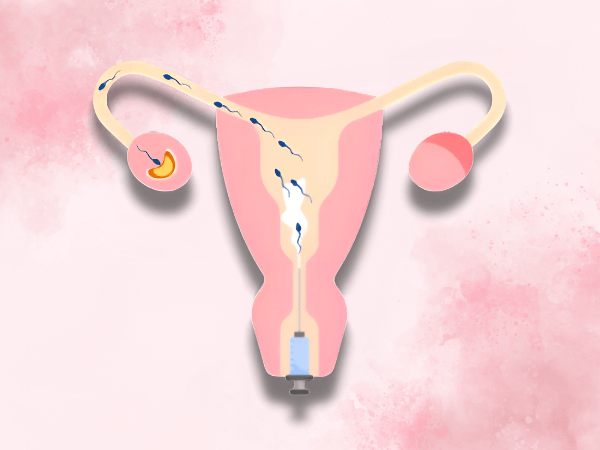Precision Uterine Care with Hysteroscopy
A minimally invasive approach to diagnose and treat uterine conditions, enhancing fertility and reproductive health.
What is IUI?
IUI is a fertility treatment that involves depositing processed and concentrated sperm into the uterus during a woman’s fertile window. Unlike natural conception, where sperm must travel through the cervix and into the uterus to meet the egg, IUI bypasses these potential barriers. This targeted approach increases the likelihood of fertilization while remaining less invasive and more affordable than other treatments like IVF.
IUI is often chosen as a first-line treatment, particularly for couples with unexplained infertility or mild male factor infertility. Its simplicity, affordability, and lower physical demands make it a popular choice for those beginning their fertility journey.

When is IUI Done?
IUI is suitable for addressing a range of fertility challenges in both men and women. It can be an effective solution for:
Female Factors
-
Ovulation Irregularities
Women with conditions such as Polycystic Ovary Syndrome (PCOS) or hormonal imbalances, where ovulation is unpredictable or absent, may benefit from IUI.
-
Cervical Mucus Problems
If the cervical mucus is too thick or hostile, it can block sperm from reaching the uterus. IUI bypasses this issue by placing sperm directly into the uterine cavity.
-
Unexplained Infertility
For couples who have normal diagnostic test results but still cannot conceive, IUI is a widely recommended starting point.
-
Mild Endometriosis
Women with mild endometriosis, where endometrial tissue outside the uterus interferes with conception, may benefit from IUI as a minimally invasive treatment option.
Male Factors
-
Low Sperm Count or Motility
When a man’s sperm count or motility is slightly below normal, IUI can improve the chances of fertilization by concentrating and delivering the healthiest sperm directly into the uterus.
-
Ejaculatory Dysfunction
Men who experience difficulty ejaculating due to medical conditions or injuries can provide sperm samples that are prepared for use in IUI.
-
Erectile dysfunction
Men who face problems with penis erection, benefit from IUI
-
Donor Sperm
For single mothers or same-sex female couples, IUI is a common procedure for using donor sperm to achieve pregnancy.
The IUI Procedure
Ovulation Monitoring and Timing
Before the IUI procedure, the woman’s ovulation cycle is closely monitored using ultrasound imaging and hormonal blood tests. This helps identify the most fertile days of the cycle. In some cases, ovulation-inducing medications may be prescribed to stimulate the development of multiple eggs and improve the chances of conception.
Semen Collection and Washing
The male partner or sperm donor provides a semen sample on the day of the procedure. The sample undergoes a laboratory process known as sperm washing, which involves:
- Removing Semen Impurities
- Concentrating and Isolating Healthy Sperm
The Insemination Process
Once the sperm is prepared, the IUI procedure is performed in a clinical setting:
- A thin, flexible catheter is inserted through the cervix and into the uterus.
- The concentrated sperm sample is gently deposited into the uterine cavity.
- The process is quick and painless, typically taking no more than 5-10 minutes.
Whether you are facing one or multiple challenges, Bud IVF is here to guide you with personalized care and expert solutions tailored to your unique needs.
Post IUI Care and Follow-Up
After the IUI procedure, patients can return to their daily activities with minimal restrictions. However, certain care practices can help improve the chances of success:
Post-Procedure Care
Rest and Relaxation
While no extended bed rest is necessary, taking it easy on the day of the procedure can help you feel more comfortable.
Avoid Strenuous Activities
Refrain from heavy exercise or lifting to prevent unnecessary strain on the body.
Healthy Diet
Focus on nutrient-rich foods that support overall reproductive health, such as fresh fruits, vegetables, lean proteins, and whole grains.
Hydration
Drink plenty of water to maintain optimal bodily functions and improve circulation.
Abstain from Smoking and Alcohol
Avoid smoking and consuming alcohol, as they can negatively affect fertility and implantation.
Follow-Up After IUI
Approximately two weeks after the IUI procedure, a pregnancy test is performed to determine the outcome. During this waiting period, patients are encouraged to remain positive and consult their fertility specialist if they experience any unusual symptoms.
If pregnancy does not occur after a few IUI cycles, your doctor may recommend further evaluations or more advanced fertility treatments, such as IVF.
Why Choose Bud IVF for IUI?

Experienced Specialists
Our team of fertility experts brings decades of experience and compassionate care to every treatment plan.
Advanced Laboratory Techniques
We use cutting-edge sperm washing and ovulation tracking technologies to maximize your chances of conception.

Personalized Care
Every patient receives a customized treatment plan tailored to their unique needs and challenges.
Comprehensive Support
From initial consultation to post-procedure care, we are here to guide and support you at every step.
Start your journey toward parenthood today with Bud IVF. Schedule a consultation and take the first step toward achieving your dreams!
FAQs
How does IUI improve the chances of conception?
Is IUI a painful procedure?
How many cycles of IUI are recommended?
Does IUI work for male infertility?
What is the success rate of IUI?
IUI success rates vary between 10-20% per cycle, depending on factors like age, the underlying cause of infertility, and egg and sperm quality. Success is typically higher in younger women and those with no severe fertility issues.
